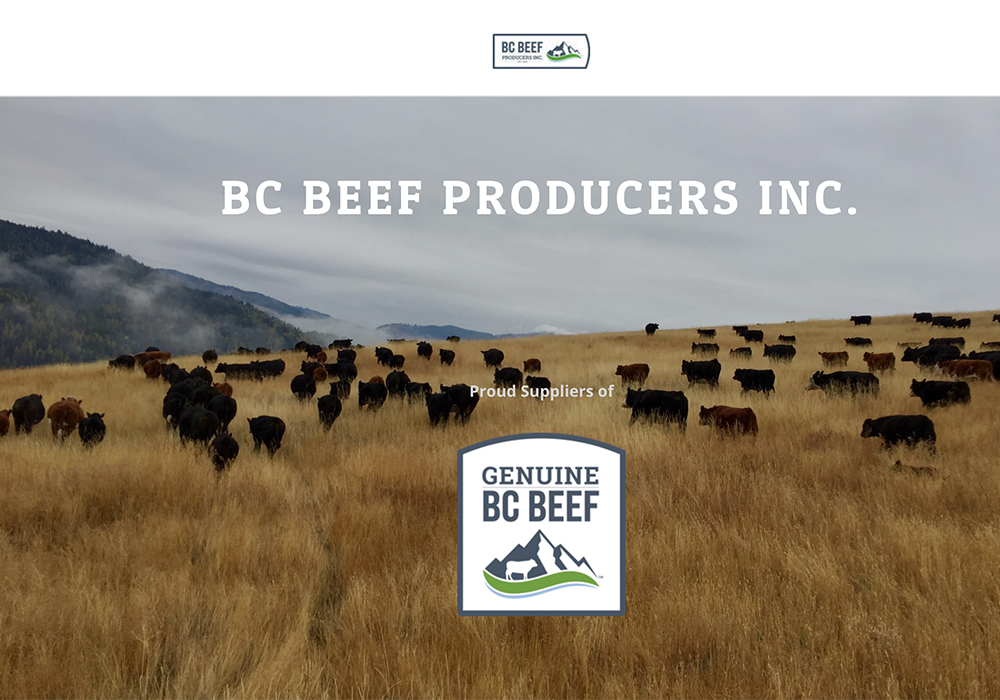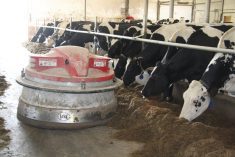British Columbia cattle producers have long desired access to a federally inspected processing plant within the province and a dedicated beef brand.
Now they have both.
B.C. Beef Producers (BCBP), a recently established corporation, has a three-year lease on the former KML meat processing facility in Westwold, B.C., about one hour east of Kamloops.
It plans to build a branded beef program that exclusively handles and markets cattle born, raised and processed in B.C. It will start by processing cull beef and dairy cows, mostly for grind, with hopes of expanding to fed cattle processing if all goes well.
Read Also

Manitoba extends Crown land rent freeze
Manitoba government links the continued rental rate freeze on grazing and forage leases to economic and environmental challenges facing the industry
The B.C. Cattlemen’s Association has been guiding the process in initial stages but general manager Kevin Boon said the association will step aside once producers have been informed of the concept and BCBP is fully operational.
“It’s a locally branded beef program that we’re designing here,” said Boon, adding that the processing plant is a tool in achieving that goal. “We needed a plant that was dedicated to producing our product, B.C. beef product.”
Speaking at an online information meeting Nov. 12, Boon said BCBP will be owned by producers, who invest by buying hooks that each represent commitment to supply one animal to the plant. The hooks are being offered for $175 each.
The plant can handle 50 head per day and it will be vital to fill that number daily to ensure adequate B.C. beef for the branded program, Boon said.
“One of the major reasons that a lot of these packing plants and endeavours fail is the fact that the supply goes awry. And with this and a substantial penalty by losing your hook if you don’t supply a share on that basis, there’s a commitment there to supply that.”
The organization of BCBP is being modelled in large part after the farmer-owned Conestoga Meats pork processing facility in Breslau, Ont., said Boon.
The B.C. plant is being managed by Mark Ishoy, former president of Eastern Meat Solutions, who has a lengthy history in the meat packing business.
Ishoy said the payment model is based on hot weight. Premiums will be paid for cows more than 650 pounds, with discounts on lighter animals because they cost more to process.
He cited research indicating B.C. consumers prefer locally raised beef, with 53 percent saying they would be willing to pay a premium for it. However, getting retailers to embrace and feature B.C. beef will require assurance of steady supply.
Ishoy also noted the multicultural community in Vancouver is a ready market for byproducts from the cattle, including lungs, spleen, tongue and liver.
“All of the byproducts can actually get marketed as we get going,” he said.
He anticipates processing 15 head per day to start, then working up to the 50-head daily goal.
Staffing the plant is likely to be a challenge, added Ishoy, but there is a core of eight people now. Further hiring is planned.
The plant will offer toll processing to non-owners, as well as custom cutting and wrapping, which is in high demand.
Ishoy said he will also seek British Retail Consortium designation for the federally inspected plant, necessary if shipping to major buyers like Maple Leaf, Olymel or retail chains.
Cattle producer and former BCCA president Judy Guishon said a processing plant and a branded beef program have been industry goals for years. She anticipates the BCBP plan will eliminate some market uncertainty for producers and will allow them to get better carcass data they can use to verify or improve herd genetics.
“It’s an idea whose time has long since come,” she said. “The only thing holding us back is our own hesitation.”
Boon said the current lease opportunity is ideal, since building a new plant would require at least $8 million. He also noted dairy producers are interested in the BCBP concept and can provide a relatively steady supply of cull animals to ensure processing when there are few beef cows available in summer. Dairy cattle make up 20 to 25 percent of Canadian beef.
“The dairy guys that are looking at this are not very hesitant about joining up,” said Boon. “The dairy guys are ready to jump.”
A B.C.-based federal plant will shorten transportation times for cattle, improving animal welfare and reducing shipping costs for producers. Participants will have to be part of the Verified Beef Production Plus program or the dairy ProAction program to verify that the animals are indeed B.C. born and raised.
















